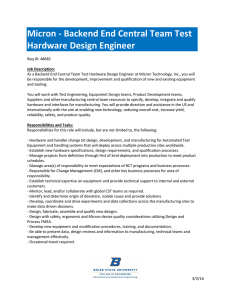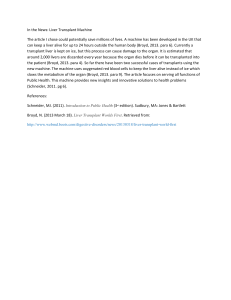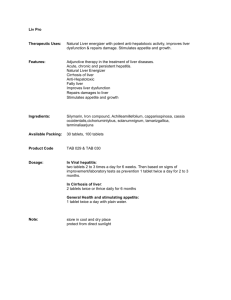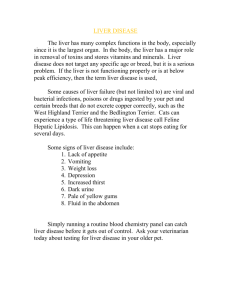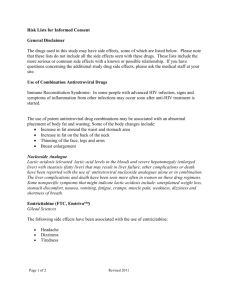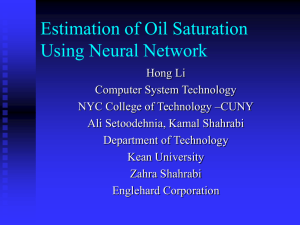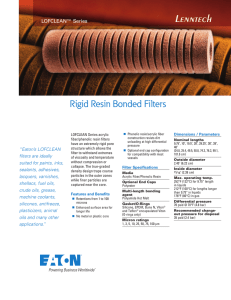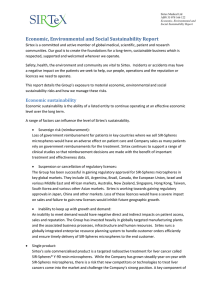For_Jim
advertisement
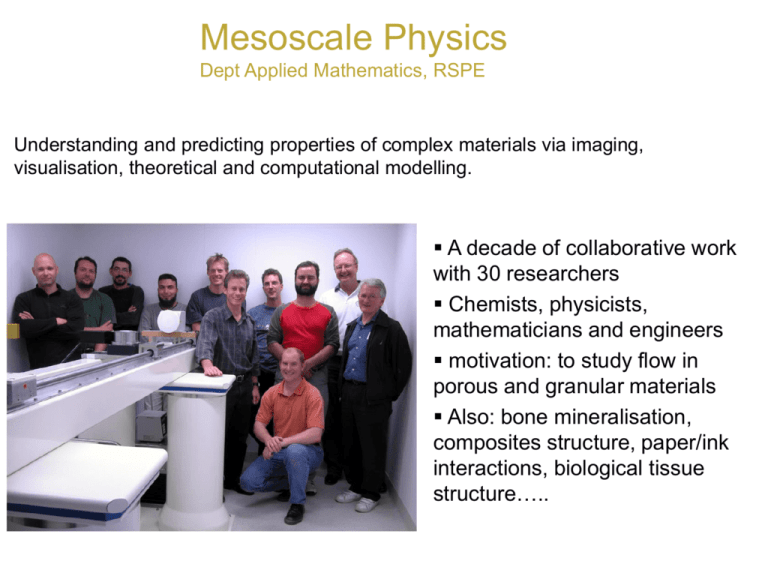
Mesoscale Physics Dept Applied Mathematics, RSPE Understanding and predicting properties of complex materials via imaging, visualisation, theoretical and computational modelling. A decade of collaborative work with 30 researchers Chemists, physicists, mathematicians and engineers motivation: to study flow in porous and granular materials Also: bone mineralisation, composites structure, paper/ink interactions, biological tissue structure….. The Consortium has included; Saudi Aramco, ExxonMobil, Shell, Chevron, BP, Total, Schlumberger, Baker Hughes, Abu Dhabi Onshore, Maersk, Petronas, PetroBras, Japan Oil & Gas, ONGC (India), BHP, BG ANU/UNSW spun-out company, Digitalcore, to provide a service for reservoir evaluation. The group aims to; start a consortium in the mining sector make software available to publicly funded research develop a JV to develop scanning technology The X-ray micro-Tomography Facility Micro-focus X-ray source Rock specimen Double helical trajectory (patented) means extremely high fidelity data from micron to centimetre scale for arbitrarily long samples. First of it’s kind. We must manage our hydrocarbon resources efficiently Physical Parameters Reservoir Descriptors Electrical Conductivity Oil Saturation Dielectric Permittivity Water Saturation Neutron Gas Saturation Borehole Pressure Porosity Sound Velocity Permeability NMR Response Gamma-ray x-section Capillary Pressure Instead of a single data point we can extract 100’s from How does fluid permeability correlate to other observables ? a single core 1 mm3 sandstone showing simulated flow lines bacterium 1 micron encapsulates Red blood cell Technetium is shrink-wrapped in graphite Size of gGlobulin protein Transmission Electron Micrograph of FibrinLite particle cluster compared with a common blood protein The chief advantage of a radio-particle over a radio-labelled drug is huge increase in specific acitivity. A drug might have only one radioactive atom per molecule – a radioparticle might have 10,000 to a million ! Transmission Electron Micrograph of FibrinLite Artist’s impression Sirtex Pty Ltd is an Australian company with a rapidly growing international business in the Liver Therapy (See October 2011 QANTAS In-Flight magazine). Their SIR-Spheres are delivered directly into the diseased liver where the 30 micron beads lodge and ablate the tumours using the isotope Yttrium-90. This product is in wide spread use around the world for the palliative treatment of secondary liver carcinoma. The Department of Applied Mathematics has teamed up with Sirtex to develop new nanoparticle-based therapies with improved diagnostic imaging capabilities. Several clinical trials are planned for the new year. Human hair SIR-Sphere Red blood cell . bacterium FibrinLite CT image of rabbit liver showing the distribution of SIR-Spheres.

